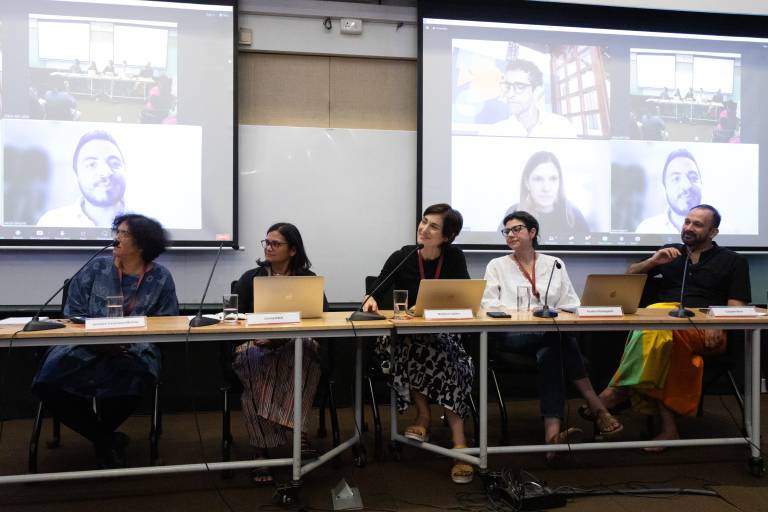Prof. Barbara Lipietz and Dr Azadeh Mashayekhi participates at IIHS Urban Arc Conference 2024
5 February 2024
Prof. Barbara Lipietz and Dr Azadeh Mashayekhi explored the ‘public’ role of internationally networked universities in times of polycrises at the recent IIHS Urban Arc Conference.

On 11-13 January 2024, the Indian Institute of Human Settlements held its 8th Annual Urban Arc Research Conference, with the theme ‘Unpacking Marginalities’.
As part of the conference, DPU's Prof. Barbara Lipietz, Vice Dean International at The Bartlett convened and chaired a roundtable discussion exploring universities’ ‘public’ role in addressing such marginalities. The hybrid discussion brought together a group of international colleagues working across a diversity of geographies, disciplines and institutional set-ups that have come together to explore ways in which universities/knowledge institutions – and built environment faculties specifically - can contribute to more sustainable, generous, and even hopeful urban futures.
Colleagues from the UK (including Dr Azadeh Mashayekhi, DPU), India (Gautam Bhan and Neha Sami), Cuba (Joiselen Cazanave-Macías), South Africa (Zarina Patel), Brazil (Francisco de Assis Comarú), Mexico (Hector Becerril), and Austria (Julia Wesely), explored the meaning of marginality in their particular contexts, and how marginality is addressed in their universities’ education, research or public engagement functions. This includes exploring support to marginalised groups of students, co-producing research with people living in marginalised neighbourhoods, or fore-fronting marginalised voices in knowledge production on the Urban.
Panellists were invited to reflect on the overlaps between a focus on marginality and a ‘public’ orientation guiding universities’ key functions. Finally, the panel touched on the relevance of an internationally networked – indeed a ’glocal’ - lens for holding such introspective conversations regarding universities’ ongoing societal relevance.
Following the panel, a two-day research workshop allowed colleagues to elaborate on local, regional and international levers of change for fostering more publicly oriented higher education institutions in a world of sharpening polycrises.
 Close
Close

